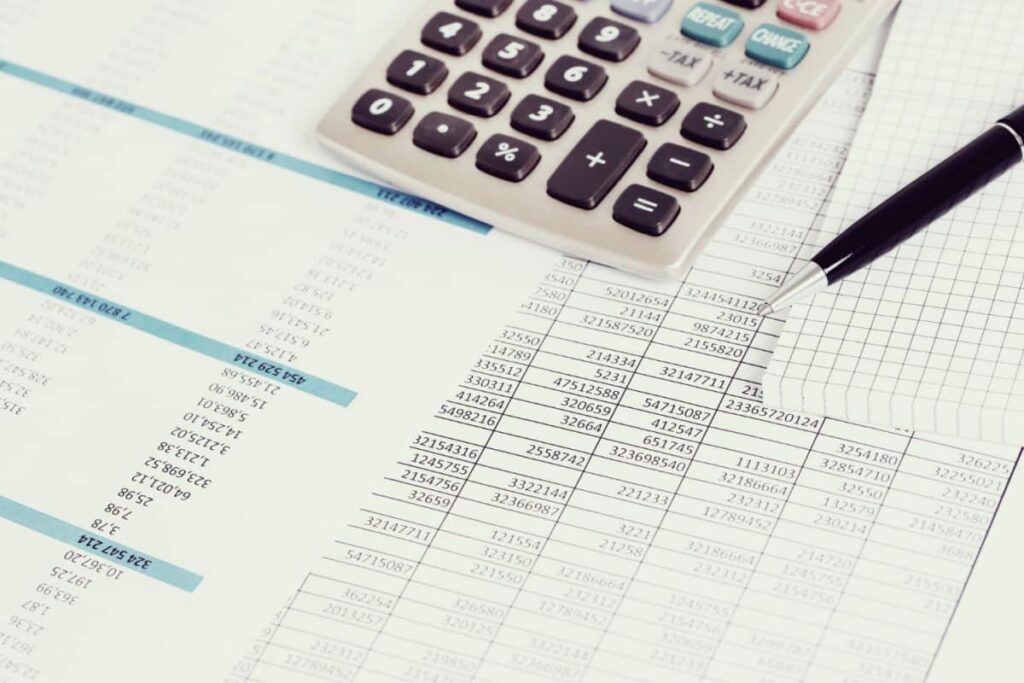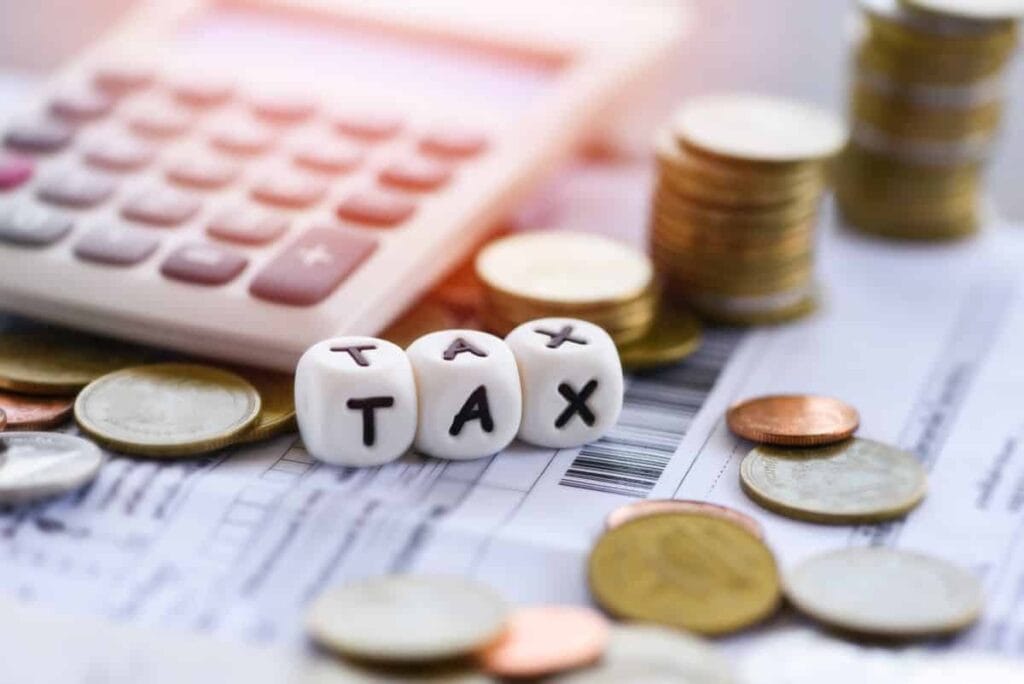Property investment may be profitable, but taxes are complicated. To maximise earnings and comply with the Australian Taxation Office, Australian property owners must understand these tax ramifications. Australian property investors should examine these tax ideas.
Capital Gains Tax (CGT) Considerations
Australian property investors must consider Capital Gains Tax (CGT) when selling an investment property. Understanding CGT can distinguish a good investment from a bad one.
Selling investment property generates a capital gain subject to CGT. Various elements make this tax computation more complicated. First, ownership length matters. Holding the property for over 12 months usually qualifies you for a 50% CGT deduction. This compromise halves the taxable gain for long-term investors, a major comfort.
Your residence also affects CGT. Australian resident and non-resident tax regulations vary, which might affect your CGT payment. The 50% discount may not be available to non-residents, so knowing your residency status and tax responsibilities is crucial.
The sort of property you bought influences CGT. Under certain conditions, selling your main residence may exempt you from CGT. Income-generating properties are not excluded. Using part of your primary home for revenue, such as renting a room, may only partially protect you from CGT.
Remember that major property modifications may affect your CGT. These modifications increase the property's cost base, lowering capital gain and CGT.
For dead estates or divorces, certain tax discounts and exemptions may apply. Managing these issues needs thought and frequent expert help.
Keeping up with CGT legislation is essential in the complicated and ever-changing world of property investing. A tax specialist who can give tailored advice and explain your CGT duties and rights is crucial. They can help with strategic planning, like sale timing to maximise tax benefits.
Despite its intimidating nature, knowing Capital Gains Tax helps reduce its influence on investment results. Knowledge and strategy are essential to selling in the most tax-efficient way, as with most property investments.
Negative Gearing Benefits
In Australian property investing, negative gearing is a hot topic. Negative gearing occurs when property expenditures, including loan interest, upkeep, and other expenses, exceed revenue. This may seem like a financial hardship but may have tax benefits.
Negative gearing reduces taxable income, its main benefit. Your earnings or wages can offset the loss from negatively geared property. This implies you might cut your income tax by moving into a lower tax band. This tax cut can benefit many investors, especially high-income ones.
It's crucial to view negative gearing objectively. The tax advantage helps manage and reduce the financial effect of a non-self-sustaining property. While property investing can ease financial burden, its main objective should be long-term capital growth. Negative gearing can be problematic if property prices don't rise as expected or interest rates or rental markets shift.
Additionally, the applicability of a negatively geared investment strategy relies on individual circumstances. Negative gearing may benefit stable, high-income investors due to tax benefits. However, negative gearing may impact cash flow more than tax benefits for people with smaller or less steady incomes.
Policy adjustments must also be considered. Changes in property investment and negative gearing tax legislation might make negative gearing less appealing. Keeping up with existing policies and prospective legislative changes is vital.
Finally, negative gearing can help property investors, but they need a thorough investing plan that includes many circumstances and outcomes. Financial experts and tax specialists can assist you in making educated property investment decisions based on your financial condition.
Negative gearing can provide Australian property investors tax benefits, but they must consider the wider picture. To maximise this technique, balance the immediate tax benefits with the long-term aims of property investing and examine your finances.
Know Your Deductible Expenses
Property investment has particular requirements, including tax rules. Australian property investors can improve their finances by recognising and using deductible costs. To assist you in understanding property investment charges, let's dig further.
1. Interest on Loans: The Significant Deduction
Interest paid on a loan to acquire, develop, or remodel an investment property is a major deduction. Your loan principle is not included. If you use part of the property for personal use, you can only claim investment interest.
2. The Fine Line Between Maintenance and Improvements
Differences between maintenance and enhancements are significant. Fixing a window or roof leak is instantly deductible. However, bathroom remodels and extensions are not immediately deductible. These costs are depreciated over time. Understanding this distinction can help you plan your expenses and claims more accurately.
3. Property Management: An Expense That Pays Off
Your rental property manager's fees are deductible. This covers tenant advertising, property inspections, and rental agreement management. Besides being convenient, it's sensible financially.
4. The Silent Saver: Depreciation
It involves deducting for building and asset wear and tear over time. A quantity surveyor may produce a depreciation plan that lists deductions for each fiscal year, making it a good investment.
5. Council Rates, Insurance, and Other Running Costs

Council, building, contents, public liability, and land taxes are also deductible. These ongoing costs may seem small but can add significant deductions over a year.
6. The Necessity of Precise Record-Keeping
Maintaining thorough records helps maximise deductions. This contains repair and maintenance invoices and property expenditure data. Having structured documents makes it easy to claim what you're entitled to and defend your claims if audited.
7. Special Circumstances: Vacant Land and Travel Expenses
Since July 2019, unoccupied land deductions have been limited. Residential rental property inspection, maintenance, and rent collection travel expenditures are no longer deductible.
Understanding and claiming the right deductibles can greatly impact your property investment journey. Each property and scenario differs, so be educated and seek expert help. Thus, you maximise returns and comply with the Australian Taxation Office.
Understand GST Implications
Australian investors must understand GST in property investment. Real estate is heavily impacted by GST, a 10% value-added tax on most products and services. Its effects depend on your property and investment activity.
Residential property sales and rentals are usually GST-exempt. If you're buying, selling, or renting a residential property, GST is usually excluded. The scenario alters when you enter commercial properties or build assets.
Commercial buildings like offices and stores are particularly affected by GST. GST is due on commercial property purchases. This can be claimed as a GST credit if you're enrolled. When selling a commercial property, you must include GST in the sale price but can claim credits for associated transactions.
Property development complicates GST. Developing property for sale is a business operation, hence GST applies. You must add GST to the prices of new property sales. You can also claim GST credits on supplies, contractor fees, and other development expenditures.
One critical aspect of GST in property investment is understanding when to register. Registering becomes mandatory if your property activities exceed the GST turnover threshold set by the Australian Taxation Office (ATO). This includes your rent income from commercial properties or revenue from property sales if you're in the property development business.
Knowing the potential for GST implications in less straightforward scenarios is also important. For instance, significantly renovating a property might be considered a new residential premise for GST purposes, which could change the tax equation.
GST is complicated since it affects your property investment business and plans. GST might affect property investments, long-term objectives, and cash flow management.
GST in property investing is complicated and has substantial financial repercussions; therefore, consult tax specialists. They can provide customised GST advice to assist you in navigating. This counsel is essential for tax compliance and financial selections that meet your goals.
Residential property investors may not have to consider GST, but commercial and development investors must. Understanding GST and obtaining expert guidance is vital for making smart property investment decisions and optimising profits in Australia.
Keep Accurate Records
Like a solid foundation, precise records are vital for stability and longevity in Australian property investing. This property management component is often underestimated yet crucial. Good record-keeping is essential for financial management and tax compliance, not only for organisations.
Property investors should document all property-related financial transactions. The initial purchase paperwork calculates capital gains tax when you sell the property. Loan paperwork, which contains interest deductions, is also crucial. By accurately documenting these documents, you may enhance your tax benefits and reduce problems when selling the home.
Not just huge transactions matter. All costs, big or small, must be recorded. Maintenance, property management, tenant advertising, and insurance are included. Over time, small costs might build up to big ones, affecting your taxable income.
Also important is thorough rental revenue data. These records should include rent received and property vacancy periods. This information is crucial for tax considerations, investment performance evaluation, rent pricing and property enhancement decisions.
Recording property upgrades and renovations is another part of record-keeping. These expenditures might be depreciated over multiple years, so you must keep thorough records to claim the exact amount each financial year.
Recording tenant and property management correspondence is also required. A communications log is useful when disagreements arise, or agreements need to be referenced. Taking care of this helps safeguard your landlord's rights.
A complete and organised set of records can make an Australian Taxation Office (ATO) audit easier. It records your income and spending, necessary for tax compliance and claims proof.
Record-keeping doesn't have to be difficult. Digitally storing papers and tracking income and spending can be simplified using software and applications. To keep your records updated, examine and arrange them often.
Australian property investing requires meticulous record-keeping. It maximises tax savings, ensures compliance, and optimises investment management and success. Like any good habit, it takes work to form, but it saves time, money, and worry.
Planning for Long-Term Success
Property investment success demands a long-term perspective beyond tax benefits and rental income. It involves creating a plan that meets your financial goals and adapts to market changes.
Property investors benefit from time. Long-term thinking helps you weather real estate market cycles. Property prices may drop temporarily owing to economic downturns or legislative changes, but they usually rise over time. Understanding and planning these cycles is essential.
Choosing an investment property holding period is crucial to long-term planning. Would you rather make immediate monetary gains or rent your assets for decades? Your investment approach, including property type, location, and financing, will depend on this choice.
Another important element is rental yield increase. The rental revenue should cover mortgage payments, upkeep, and taxes and make a profit. As property equity and rental earnings rise, profitability can improve. However, rental yield predictions should account for market-driven vacancies and rent decreases.
In long-term property investment strategy, inflation is often disregarded. Over time, inflation can lower your debt, making mortgage payments cheaper. It can also affect costs and rental income worth. Effective long-term planning needs knowing inflation's consequences on your investment and how to mitigate them.
Of course, long-term property investment strategy goes beyond properties. It's also about how this investment matches your financial plan. As you near retirement, your risk tolerance may decrease, and your requirement for liquid assets grows. To ensure your property investment meets your requirements and aspirations throughout your life, you must understand how it will change as part of your financial landscape.
Planning for long-term property investment success in Australia requires a holistic approach. It requires understanding the market and picking the correct properties, calculating how your investment will grow and evolve, how it fits your financial strategy, and preparing for economic issues that may affect your investment. Property investing may develop wealth and financial stability with correct preparation.
Conclusion
As a property investor in Australia, taxation may be complicated yet essential. Understanding deductible costs, Capital Gains Tax, negative gearing, and GST consequences is crucial to your property investment journey's financial health and success.
Remember that property investing is about knowing and managing budgetary responsibilities as much as purchasing assets. Accurate and complete records are essential for making educated decisions and complying with the Australian Taxation Office.
Property investors must realise that each case is unique to navigate the tangle of legislation and financial concerns. One investor's strategy may not work for another. This uniqueness emphasises the need for customised tax and financial guidance. They may offer advice based on your needs, goals, and risk tolerance.
Tax preparation must be knowledgeable, organised, and proactive in the fast-paced world of property investing. It protects against risks and maximises investment profitability and sustainability. Remember these tax tips and seek expert guidance if you invest in property. Property investments may be profitable with the appropriate technique and a close eye on tax requirements and possibilities.
Content Summary
- Property investment in Australia can be profitable, but investors must understand the tax implications and strategies.
- Capital Gains Tax (CGT) is a significant factor distinguishing good and bad investments.
- It is determined by ownership length, residence, property type, and major property modifications.
- Under certain conditions, selling your main residence may exempt you from CGT, while income-generating properties are not excluded.
- However, using part of your primary home for revenue, such as renting a room, may only partially protect you from CGT.
- Certain tax discounts and exemptions may apply for dead estates or divorces, which requires careful planning and expert help.
- Keeping up with CGT legislation is essential in the complex and ever-changing world of property investing.
- A tax specialist can provide tailored advice and explain your CGT duties and rights, helping with strategic planning and sale timing to maximise tax benefits.
- Negative gearing is another topic in Australian property investing, where property expenditures exceed revenue, leading to tax benefits.
- This reduces taxable income, benefiting many investors, especially high-income ones.
- However, negative gearing can be problematic if property prices don't rise as expected or interest rates or rental markets shift.
- The applicability of a negatively geared investment strategy depends on individual circumstances, with stable, high-income investors benefiting from tax benefits, while people with smaller or less steady incomes may face more cash flow issues.
- Policy adjustments must also be considered, as changes in property investment and negative gearing tax legislation may make negative gearing less appealing.
- Financial experts and tax specialists can assist investors in making informed property investment decisions based on their financial condition.
- In conclusion, while negative gearing can benefit property investors, they must consider the wider picture and balance immediate tax benefits with long-term property investing goals.
- Property investment in Australia has specific tax rules and deductible costs that can significantly impact an investor's finances.
- Understanding these charges is crucial for making informed decisions and complying with the Australian Taxation Office.
- Some deductible expenses include interest on loans, maintenance and improvements, property management fees, depreciation, council rates, insurance, and other running costs.
- Depreciation involves deducting for building and asset wear and tear over time, while council rates, insurance, and other running costs are also deductible.
- Precise record-keeping is essential for maximising deductions, as it helps you claim what you're entitled to and defend your claims if audited.
- Additionally, vacant land and travel expenses have been deducted since July 2019.
- GST, a 10% value-added tax on most products and services, heavily impacts real estate investments.
- Residential property sales and rentals are usually GST-exempt, but the situation changes when entering commercial properties or building assets.
- Commercial buildings like offices and stores are particularly affected by GST due to commercial property purchases and can be claimed as a GST credit if enrolled.
- Property development complicates GST, as it applies to property sales and development expenditures.
- It is crucial to know when to register, as it becomes mandatory if property activities exceed the GST turnover threshold set by the Australian Taxation Office (ATO).
- GST can affect property investments, long-term objectives, and cash flow management. To navigate GST in property investing, consult tax specialists who can provide customised advice to help navigate the complex tax landscape.
- Residential property investors may not need to consider GST, but commercial and development investors must.
- Understanding GST and seeking expert guidance is vital for making smart property investment decisions and optimising profits in Australia.
- Accurate records are crucial for stability and longevity in Australian property investing.
- Proper record-keeping is essential for financial management and tax compliance, not only for organisations.
- Property investors should document all property-related financial transactions, including initial purchase paperwork, loan paperwork, interest deductions, maintenance, property management, tenant advertising, and insurance.
- Over time, small costs can build up to big ones, affecting taxable income.
- Thirdly, thorough rental revenue data, including rent received and property vacancy periods, is important.
- This information is crucial for tax considerations, investment performance evaluation, rent pricing, and property enhancement decisions.
- Property upgrades and renovations are also necessary, as these expenditures may be depreciated over multiple years.
- A communications log is useful when disagreements arise or agreements must be referenced, protecting the landlord's rights.
- A complete and organised set of records can make an Australian Taxation Office (ATO) audit easier by recording income and spending, which is necessary for tax compliance and claims proof.
- Digitally storing papers and tracking income and spending can be simplified using software and applications.
- To keep records updated, examine and arrange them often.
- Planning for long-term success in property investing requires a holistic approach that includes understanding the market, picking the correct properties, calculating how your investment will grow and evolve, fitting your financial strategy, and preparing for economic issues that may affect your investment.
- Property investing can develop wealth and financial stability with correct preparation.
- In conclusion, taxation is complex but essential for property investors in Australia.
- Understanding deductible costs, Capital Gains Tax, negative gearing, and GST consequences is crucial for their financial health and success.
- Accurate and complete records are essential for making educated decisions and complying with the Australian Taxation Office.
- Property investors must realise that each case is unique, and customised tax and financial guidance is needed to navigate the tangle of legislation and financial concerns.
- Tax preparation must be knowledgeable, organised, and proactive in the fast-paced world of property investing, protecting against risks and maximising investment profitability and sustainability.
Frequently Asked Questions
Australian property investors have several tax deductions. These include interest on investment loans, property management fees, maintenance and repair charges, depreciation on the building and fixtures, insurance premiums, and municipal taxes. Keep detailed cost records to optimise deductions.
Capital gains tax applies when you sell an investment property for a profit. CGT may be reduced by 50% if you've held the property for over 12 months. Your CGT liability depends on the residence and property type. To properly handle CGT, you must grasp these aspects.
Property investors need accurate record-keeping to support tax filings. Purchase and sale agreements, financing paperwork, and property spending receipts are included. Record-keeping helps you optimise tax benefits and provide proof for Australian Taxation Office audits.















